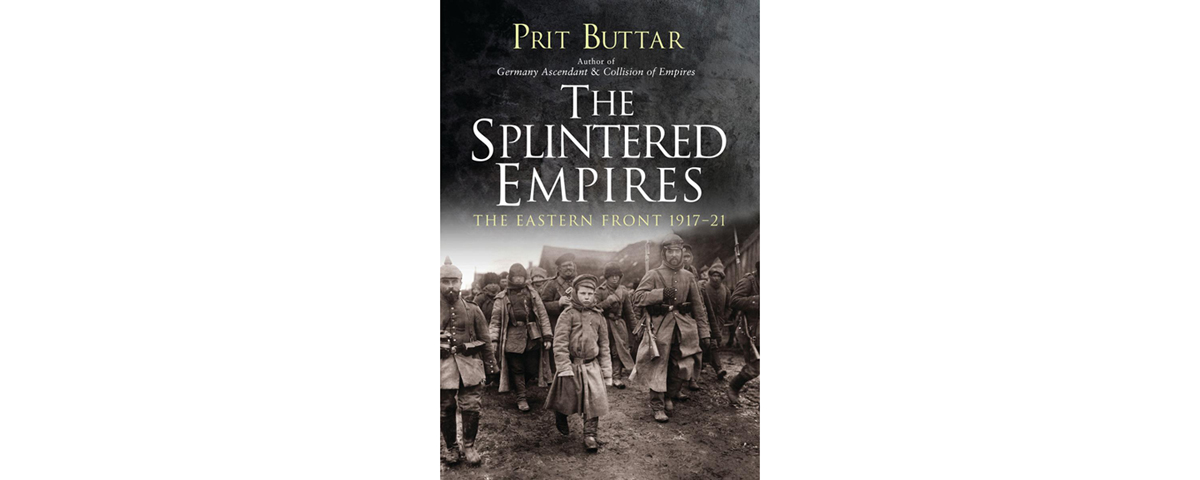The Splintered Empires: The Eastern Front 1917–21, by Prit Buttar, Osprey Publishing, Oxford, U.K., 2016, $30
Although it is de rigueur to complain that historians give short shrift to fighting on the World War I Eastern Front, big leaguers from Winston Churchill to John Keegan have paid attention. The definitive account, however, concludes with this final volume of four (stretching nearly 2,000 pages) by talented amateur military historian Prit Buttar.
In his insightful summary of the war before 1917 Buttar emphasizes that armies on both fronts employed trench warfare and the latest weapons. What differed were infrastructure and the quality of leadership. Roads were scarce in the East, and efforts to supply the massive armies via the few existing primitive railroads proved overwhelming. Soldiers went hungry; shells were rationed. The Russian and Austro-Hungarian armies of 1914 had minimal training and were poorly led. By 1917 they had absorbed horrendous casualties. Hurried replacements were essentially untrained. The German army was an exception, but pushing deeper into Russia brought victory no closer.
With the possible exception of the oblivious Czar Nicholas II, Russian leaders at the beginning of 1917 knew revolution was imminent. Riots in Petrograd spread, army units refused to intervene and Nicholas abdicated in March. The provisional government, a quarrelsome mixture of liberal reformers and radicals from the Petrograd workers’ Soviet, failed to restore order, and the October Bolshevik revolution didn’t improve matters.
Historians have not neglected the brutal Russian Civil War, which sputtered on for years after the 1918 Armistice. Buttar devotes a chapter to it, though he focuses mainly on the many nasty little-known wars that accompanied the breakup of the Russian and Austro-Hungarian empires. Anti-Bolshevik forces lost in Russia but won in Finland, Estonia, Latvia and Ukraine. Nearing victory at home, the Red Army fought a major war with newly independent Poland. Its unexpected defeat in 1920 ensured the survival of Poland and Lithuania and put an end—at least temporarily—to Vladimir Lenin’s fantasy of spreading communism to Europe.
Buttar’s expert, often gruesome account of events in the region illuminates an era of conflict, mass murder, famine and genocide that remains relatively obscure only because it was followed by worse.
—Mike Oppenheim





